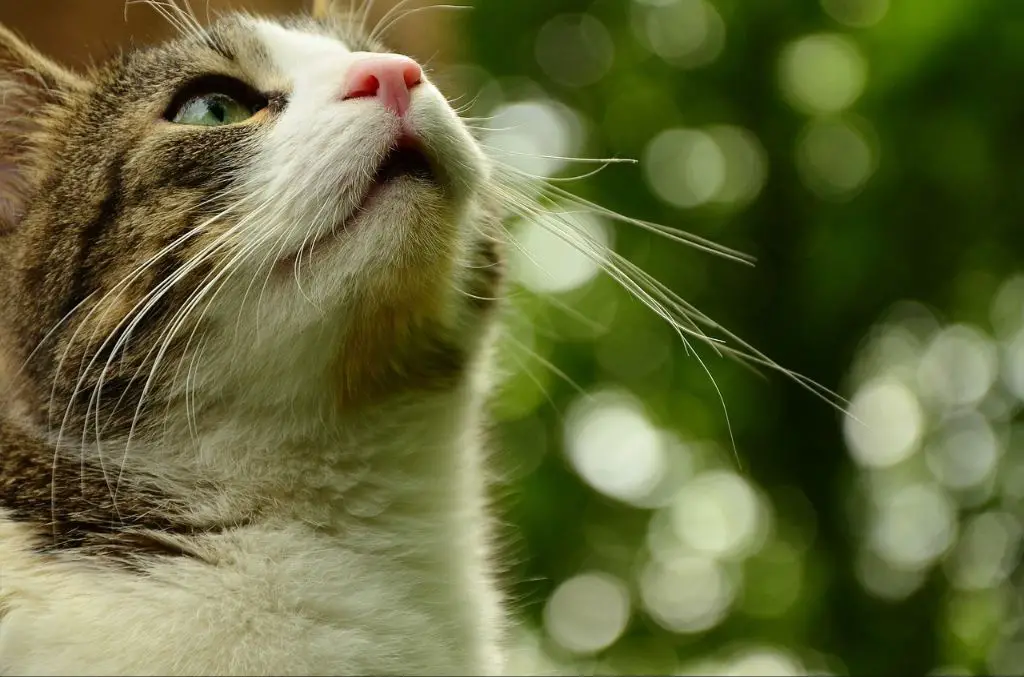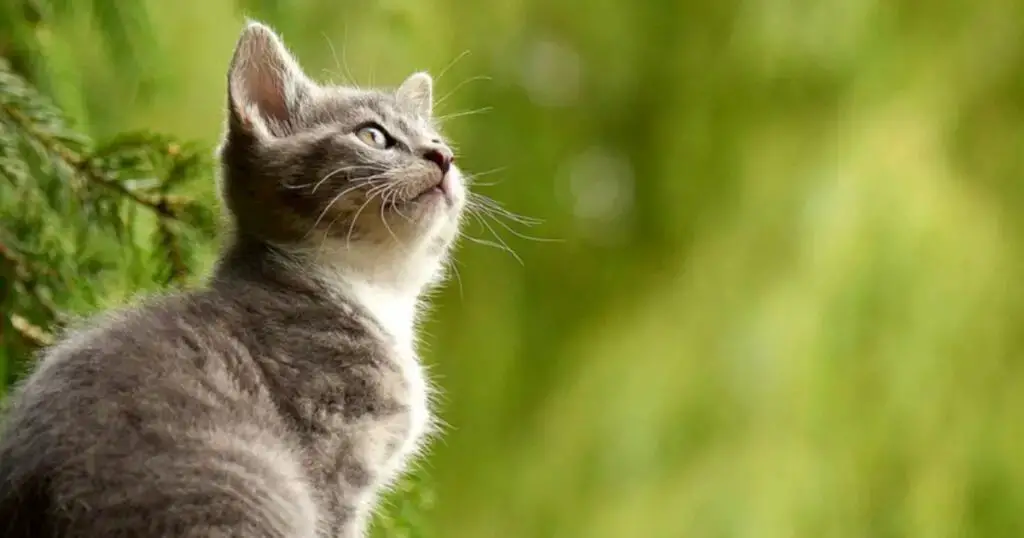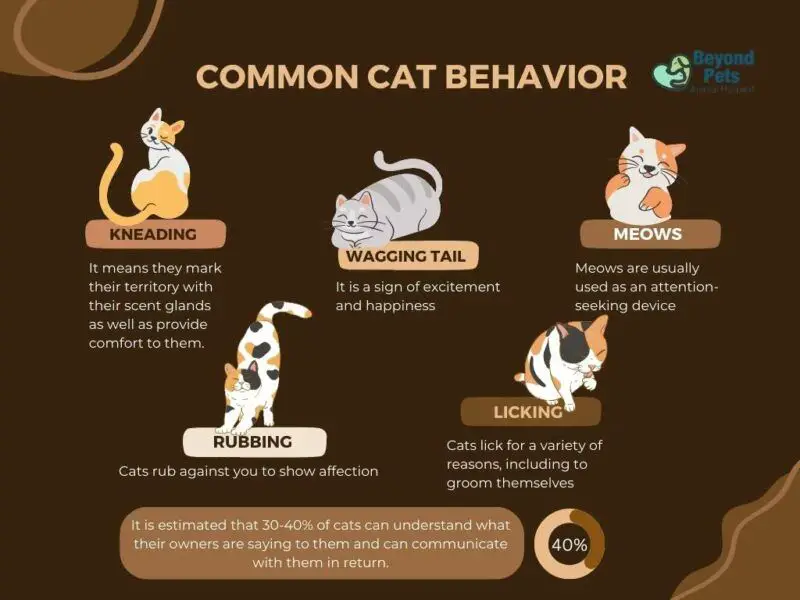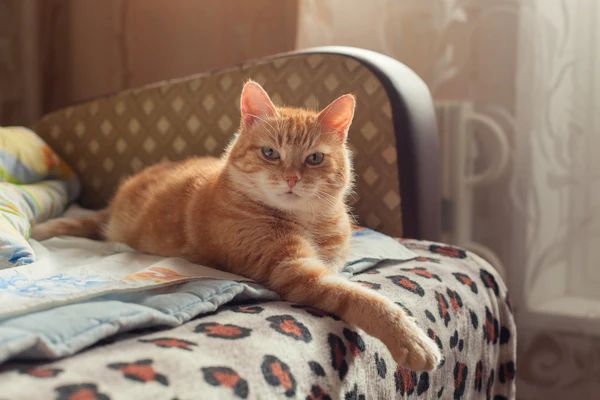This article discusses whether cats have the cognitive ability to remember their mothers long after separation. It examines the nature of cats’ memories, including short-term and long-term memory capabilities. Factors like scent, maternal behaviors, and individual differences that may influence a cat’s memory are explored. The goal is to provide a comprehensive look at the available science and anecdotal evidence to determine if cats retain memories of their mothers over time.
Mother-Kitten Bond
Mother cats form an extremely close bond with their kittens during the early weeks after birth. According to Icatcare.org, mother cats are very protective of their young and will rarely let the kittens out of their sight during the first few weeks of life [1]. The mother nurses and grooms the kittens frequently, providing warmth and affection. She teaches them behaviors like using the litter box and grooming. The kittens rely on their mother cat completely during this time. They recognize her scent and sounds and will immediately come when she calls them. The mother cat bonds strongly with each kitten.
Memory and Scent
Cats have a powerful sense of smell and use scent as one of their primary methods for recognizing other cats, people, and places. A cat’s sense of smell is 14 times stronger than humans, with around 200 million scent receptors compared to our 5 million. They possess a vomeronasal organ that detects pheromones and gives cats detailed information from smells (Petcube, 2023).

Because of their excellent scent memory, cats are able to recognize and remember individuals they have encountered before, even years later. Scent memory begins early, with kittens and mothers exchanging scents during nursing to facilitate recognition. Even if separated, a mother cat and kittens will likely remember each other’s smells for life. Scent memory also allows cats to remember people, places, and other cats they have bonded with previously. Although it may seem like a cat has “forgotten” you after an absence, their powerful scent memory means they likely still retain memories of your smell.
Short-Term Memory
Kittens have a strong short-term memory of their mothers that lasts for the first few months after separation. Research shows that kittens recognize the scent of their mother for up to two months after weaning (https://avsab.org/do-kittens-recognize-their-mothers-even-after-theyve-lived-apart/). The kitten’s sense of smell is very acute at a young age and they become familiar with the unique scent signature of their mother. When reunited even a couple months later, most kittens will recognize and respond to the mother’s scent.
This short-term memory Allows kittens separated from their mother at a young age to still recognize her scent and accept care and feeding. However, as time passes, the kitten’s memory of the mother’s scent will begin to fade. By around 3-4 months after separation, studies show most kittens will no longer recognize or respond preferentially to their mother (https://www.catster.com/guides/do-cats-remember-who-their-mother-is/).
Long-Term Memory
There is limited evidence that adult cats can remember their mothers long-term. One study found that kittens were able to recognize the scent of their mother up to a year after separation (https://avsab.org/do-kittens-recognize-their-mothers-even-after-theyve-lived-apart/). This suggests kittens may retain some memory of their mother’s scent into adulthood. However, recognizing a familiar scent is different than remembering the identity of their mother. Overall, there is no conclusive scientific evidence that adult cats have long-term memories of their specific mother. Anecdotal reports of reunited cats showing signs of recognition provide some indication, but controlled studies are still needed.
While adult cats may not remember their specific mother, they do seem to retain some early social bonds and behaviors learned from their mother. For example, female cats who were well cared for by their mother tend to become good mothers themselves. This maternal behavior seems to be passed down rather than requiring long-term memory of their specific mother.
Anecdotal Evidence
While scientific research on cat memory is limited, there are many anecdotal stories of cats appearing to recognize their mothers after long separations. On Reddit, one user described being reunited with their cat after 2 years, and the cat seemed to remember them despite having been separated as a kitten.

According to another Reddit thread, some users report adult cats recognizing their mothers after being apart for over a year. One commenter said their 1-year old cat appeared to recognize her mother after 9 months apart. The kitten nuzzled and groomed the mother cat, suggesting familiarity.
However, such anecdotal experiences are not proof that cats have long-term memory for close family members. More research is needed to determine conclusively if cats can remember specific individuals over long periods of time.
Maternal Behaviors
Female cats (queens) show strong maternal instincts and behaviors when caring for their young kittens. Even after a female cat has been spayed, her maternal behaviors may continue into adulthood. According to Point Vincent Veterinary Center, “Even after spaying, the maternal instinct remains strong in females. While they aren’t as apt to display in-your-face affection, female cats are intensely loyal and still mother their humans” (source).
Some common maternal behaviors that spayed adult female cats may continue to exhibit include:
- Nesting – An adult female cat may try to build a nest out of blankets, paper, or other materials
- Comforting behaviors – Licking, grooming, purring, and snuggling with human family members
- “Calling” or meowing for kittens that are not there
- Mothering and caring for toys, other pets, or objects as if they were kittens

While maternal behaviors are common in spayed adult female cats, the behaviors are usually not as intense or persistent as a mother cat with an active litter of kittens. However, some cats do exhibit very strong mothering behaviors throughout their lives.
Other Family Ties
Cats can often remember and recognize siblings or offspring, even after periods of separation. According to a study published in National Geographic, cats utilize a combination of sight, sound, and scent to identify family members. Phenotype matching also allows cats to recognize shared physical traits among relatives.
There are many anecdotal reports of cats appearing to recognize their siblings or grown kittens after months or years apart. For example, some cats adopted into separate homes as kittens have warmly greeted litter-mates when reunited as adults. However, more research is still needed to fully understand long-term memory and recognition abilities in cats.
Individual Variation
Memory ability may vary significantly between individual cats, just as it does in people. Some cats may have excellent memories and retain information for years, while others may tend to forget things more readily. According to Dr. Dawn the Pet Vet, “Other intelligence and memory studies show that cats have a working memory span of 16 hours compared to the dogs’ 5 hours. Feline intelligence and memory recall also varies between breeds and individuals,” (drdawnthepetvet.com).

There are many factors that can influence a cat’s memory, including age, environment, nutrition, socialization, overall health and genetics. Kittens and younger cats may have an easier time forming and retaining memories compared to senior cats. Just like people, mental sharpness can decline with age. An enriched home environment with lots of stimulation can help exercise a cat’s mind and strengthen their ability to remember. Proper nutrition is also key for cognitive health. Ultimately each cat is a unique individual, so their capacity for memory will differ.
Conclusion
Based on the evidence presented, it seems that cats may retain memories of their mothers and littermates from kittenhood into adulthood. However, the strength and duration of these memories can vary between individual cats.
Cats primarily rely on scent rather than vision for recognition. The kitten’s attachment to its mother’s scent appears strong but diminishes after separation, suggesting short-term memory plays a key role. However, some cats do retain enough long-term memory of early family connections to recognize their mother or siblings later in life. This is supported by anecdotal accounts of reunited cats interacting as if familiar.
Maternal behaviors like allorubbing, grooming, and nursing form the basis of the mother-kitten bond. While kittens likely remember these intimate experiences, adults may retain more of a familiar feeling rather than distinct memories. Other family ties like those between littermates also involve scent and companionship during formative stages, which can leave limited lifelong impressions.
Overall, evidence indicates cats can remember family members from kittenhood as adults, but the strength and duration of memory varies. More research would help clarify the extent and nature of cats’ capacity to recall early maternal bonds.

